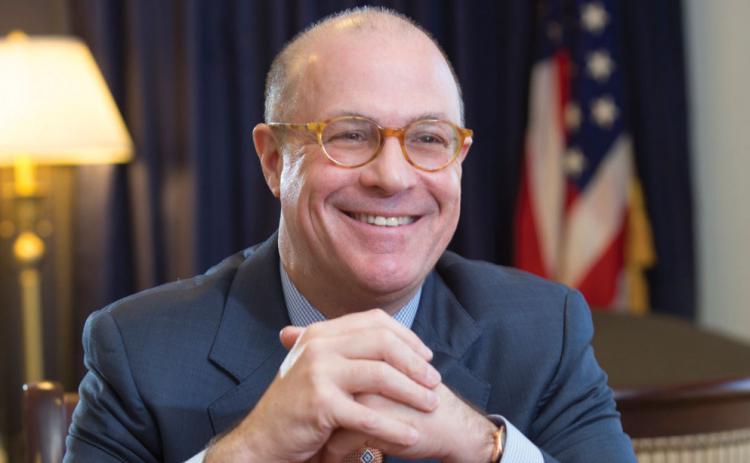After ‘numerous’ employee inquiries the U.S.’s main commodities regulator, CTFC, recently told them they are allowed to invest in cryptocurrencies, this is just a few weeks after the agency began overseeing Bitcoin futures. Under the Commodity Futures Trading Commission’s ethics guidance, workers can trade digital tokens as long as they don’t buy them on margin or have inside information gleaned from their jobs. Investing in the Bitcoin futures that the CFTC polices, however, is barred.
It’s not known how exactly many people at the CFTC are actively trading the products. What is known is that the agency’s general counsel, Daniel Davis, told employees in a Feb. 5 memo that the guidelines were being issued after the commission’s ethics office had received “numerous inquiries” about whether the investments were permissible.
Angela Walch, an associate professor who specializes in digital money and financial stability at St. Mary’s University School of Law said:
“This is actually mind-boggling that they are allowing investing in this at all. It could absolutely skew their regulatory decisions.”
Erica Richardson, a spokeswoman for CFTC Chairman J. Christopher Giancarlo, said he was among those asking for the ethics guidance because he wants to make sure that agency employees dealing with virtual currency regulations or investigations aren’t investing in them.
The chairman has made it clear that staff members who own Bitcoin should not participate in matters related to Bitcoin, as it presents a conflict of interest,” she said.

The CFTC has been at the forefront of positive regulation for Bitcoin. In 2014 they declared that the digital currency was a commodity subject to the agency’s oversight. However, they have taken the approach of treading carefully, and the supervision has mostly consisted of enforcement actions to halt alleged frauds. It should be noted that the majority of crypto trading takes place on lightly regulated exchanges or in foreign countries where the commission has no authority.
In 2017 the pace of regulatory change accelerated when Giancarlo allowed two major U.S. exchanges to offer Bitcoin futures, a move that placed his agency at the forefront of crypto oversight.
An enthusiastic promoter of technology who previously worked at a swaps brokerage, Giancarlo became an online folk hero for his seemingly supportive comments about cryptocurrencies at a congressional hearing this month. He gained thousands of Twitter followers and was the subject of a series of memes where he was called Bitcoin Jesus, crypto dad and even encouraged to run for president.
The guidance on trading digital currencies was based on the CFTC’s standard ethics rules, which allow investments in physical commodities. That’s because the agency doesn’t regulate markets where corn or oil, for example, are bought and sold. Instead, it regulates futures contracts derived from oil or corn prices.
In his memo, Davis, the CFTC’s chief lawyer, wrote that because the agency has determined digital tokens are a commodity, workers can trade them like they would any other commodity.
The guidance does note that staff members shouldn’t invest if they have nonpublic information that could impact the trade. That could potentially arise if they are handling an enforcement case, conducting surveillance or working on a regulation involving digital tokens. Davis also said that employees need to ask if the transaction would cause “a reasonable person” with all the facts to question their ethics.
Davis wrote:
“In this environment, the situation is ripe for the public to question the personal ethics of employees engaging in cryptocurrency transactions. Please keep in mind that you must endeavor to avoid any actions creating the appearance that you are violating the law or government and commission ethical standards.”
What are the SEC’s Regulations on Employee Trading?
The Securities and Exchange Commission already allows its workers to invest in crypto, with some exceptions similar to the CFTC. However, it should be noted that the SEC has less regulatory oversight when it comes to crypto markets.
The SEC’s jurisdiction right now is largely limited to ICOs, where companies raise money by selling tokens. The agency’s employees cannot invest in those until seven days after the ICO, according to a memo its ethics counsel issued in January. The SEC also requires its staff to pre-clear all their digital currency trades.
Regulatory Oversight
Government ethics lawyers and regulators are dealing with a number of tricky questions, including whether the coins are commodities, currencies or securities. Another potential issue is whether they are akin to an investment or more like cash in a checking account.
Kathleen Clark, a professor at Washington University School of Law.
“Logically it makes sense to apply the same standard they apply to Bitcoin as they apply to other commodities. Ethics standards seem to be general enough to cover it.”
However, Richard Painter who specializes in securities law and was a White House ethics lawyer under President George W. Bush, said that cryptocurrencies seem to be more like futures than physical commodities.
Also, regulatory decisions can have an impact on the underlying markets. One major example: The price of Bitcoin jumped 13 percent on Dec. 1, the day of the CFTC’s announcement that it was allowing Bitcoin futures.
Painter said:
“This just looks terrible.”
Many commentators have said that CFTC should be doing more to regulate digital tokens, not allowing its workers to speculate on them. However, it should be noted that employees are allowed to trade other commodities and so why should crypto be any different.





Comments are off this post!